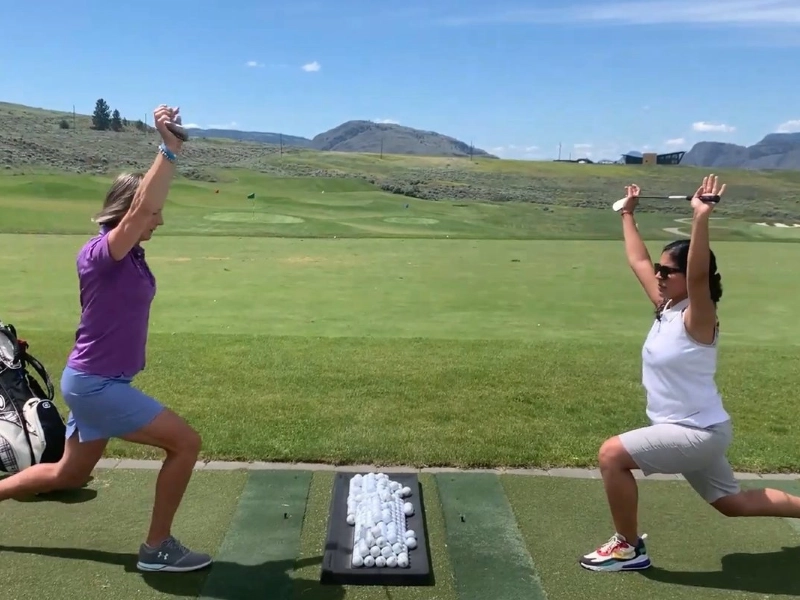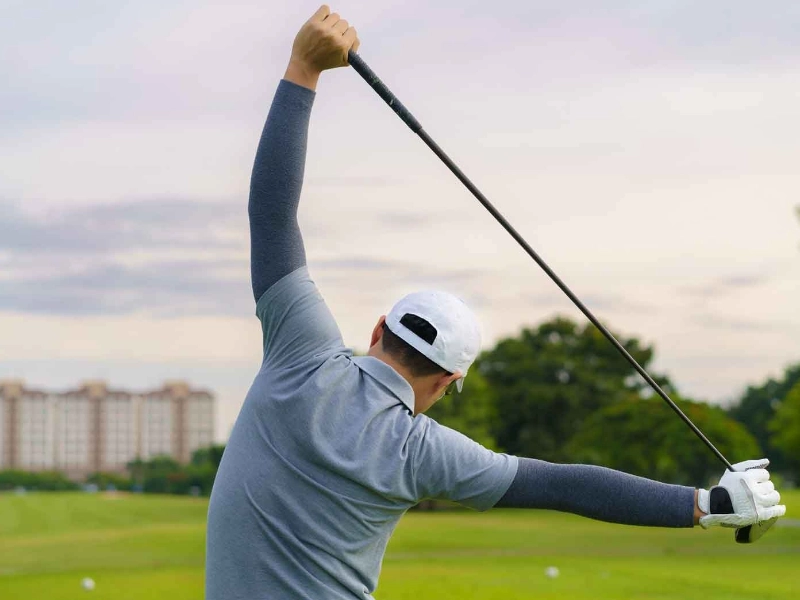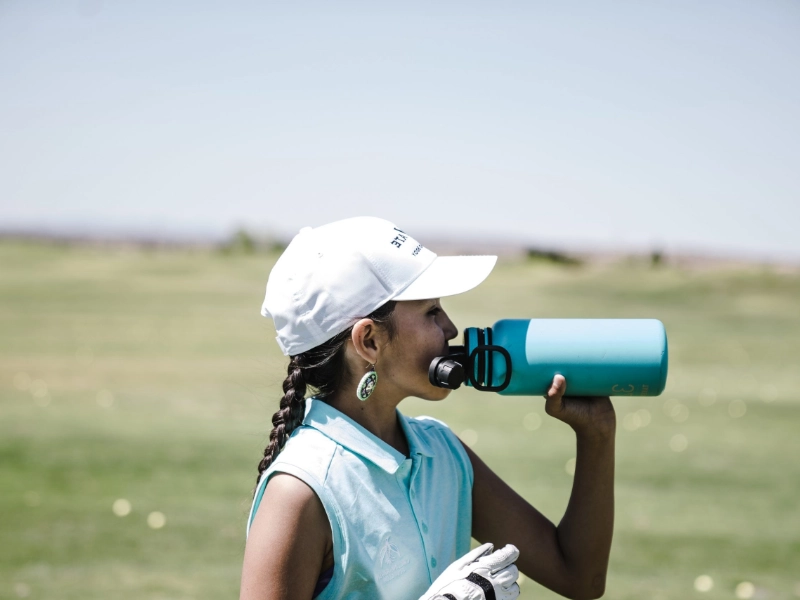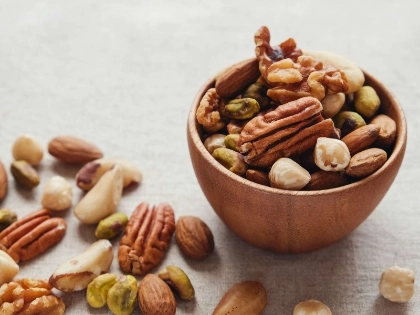Preventing Golf Injuries: Safeguarding Your Body While Playing
Golf is frequently thought of as a low-impact sport, but the repeated nature of the exercise may still be hard on your joints and muscles. It's imperative to take precautions against injury if you want to enjoy your time on the course. Pre-game stretching and a thorough warm-up can help lower the chance of injury. Compression bands, cooling injuries, and staying hydrated can all help reduce pain.
Get warmed up

Extends
 Golf is a repetitious sport that repeatedly strains the same joints, muscles, and tendons. A regular program of flexibility and core strength training can help lower the risk of injury.
Playing with proper body mechanics can help reduce the chance of injury. To swing smoothly, you need to have a strong core and hips. For a golfer, shoulder suppleness and trunk rotation are also crucial. Golfers' low back pain has been related to internal rotation of the spine and a lack of flexibility in the hip flexors.
It's imperative to follow a proper warm-up and stretching routine before hitting the range or playing golf. This should involve a quick burst of cardiovascular activity, such a walk, brisk jog, or jumping jacks, followed by some dynamic stretches, like the knee to chest and trunk twists. Your muscles will receive more blood flow as a result before you start your round of golf.
Golf is a repetitious sport that repeatedly strains the same joints, muscles, and tendons. A regular program of flexibility and core strength training can help lower the risk of injury.
Playing with proper body mechanics can help reduce the chance of injury. To swing smoothly, you need to have a strong core and hips. For a golfer, shoulder suppleness and trunk rotation are also crucial. Golfers' low back pain has been related to internal rotation of the spine and a lack of flexibility in the hip flexors.
It's imperative to follow a proper warm-up and stretching routine before hitting the range or playing golf. This should involve a quick burst of cardiovascular activity, such a walk, brisk jog, or jumping jacks, followed by some dynamic stretches, like the knee to chest and trunk twists. Your muscles will receive more blood flow as a result before you start your round of golf.
Maintain Hydration
 The golf swing uses the whole body, and overuse ailments including elbow, wrist, and shoulder pain can result from repetitive stress. Nikhil Verma, MD, a sports medicine specialist at Rush Orthopedics, states that age-related wear and tear on muscles and tendons, poor technique, and overuse are the main causes of golf injuries.
In order to play golf and avoid overuse injuries, it is essential to be hydrated. Before and throughout the round, it is advised that players hydrate with water, electrolyte drinks, or low-sugar sports drinks. Carrying a portable water bottle is also essential to promote hydration during the game.
Lowering your risk of dehydration before a round of golf can be achieved by avoiding alcohol and caffeine. Due to their diuretic properties, alcohol and caffeinated beverages cause the body to urinate more frequently. The recommended amount to drink before a round is 2-4 milliliters per pound of body weight, so a 150-pound person should have 4-6 ounces). To avoid becoming dehydrated after playing golf, it's also critical to rehydrate.
The golf swing uses the whole body, and overuse ailments including elbow, wrist, and shoulder pain can result from repetitive stress. Nikhil Verma, MD, a sports medicine specialist at Rush Orthopedics, states that age-related wear and tear on muscles and tendons, poor technique, and overuse are the main causes of golf injuries.
In order to play golf and avoid overuse injuries, it is essential to be hydrated. Before and throughout the round, it is advised that players hydrate with water, electrolyte drinks, or low-sugar sports drinks. Carrying a portable water bottle is also essential to promote hydration during the game.
Lowering your risk of dehydration before a round of golf can be achieved by avoiding alcohol and caffeine. Due to their diuretic properties, alcohol and caffeinated beverages cause the body to urinate more frequently. The recommended amount to drink before a round is 2-4 milliliters per pound of body weight, so a 150-pound person should have 4-6 ounces). To avoid becoming dehydrated after playing golf, it's also critical to rehydrate.
Continue to Move
 Golf is a game that many people may enjoy since it combines physical prowess, talent, and strategy. But just like any exercise, if proper form and conditioning are not followed, there is a chance of injury.
The majority of golf-related injuries are brought on by overuse from repeated motions that strain muscles and tendons more. Golfers may have elbow discomfort (sometimes known as "golfer's elbow"), wrist pain (tendinitis), shoulder pain (including rotator cuff problems), and hand tenderness or numbness over time.
Golfers can learn good swing mechanics from a physical therapist, who can also provide an exercise program that includes core strengthening and stretching. To lower their risk of injury, golfers can also make sure their equipment is suited correctly and adhere to a schedule of suitable rest days. Lastly, a player should ensure that they are consuming enough water and energy to last the duration of a round of golf. The recommended weekly amount of moderate-intensity aerobic activity is 150 minutes, according to the Centers for Disease Control and Prevention. Playing golf is an excellent method to fill those minutes!
Golf is a game that many people may enjoy since it combines physical prowess, talent, and strategy. But just like any exercise, if proper form and conditioning are not followed, there is a chance of injury.
The majority of golf-related injuries are brought on by overuse from repeated motions that strain muscles and tendons more. Golfers may have elbow discomfort (sometimes known as "golfer's elbow"), wrist pain (tendinitis), shoulder pain (including rotator cuff problems), and hand tenderness or numbness over time.
Golfers can learn good swing mechanics from a physical therapist, who can also provide an exercise program that includes core strengthening and stretching. To lower their risk of injury, golfers can also make sure their equipment is suited correctly and adhere to a schedule of suitable rest days. Lastly, a player should ensure that they are consuming enough water and energy to last the duration of a round of golf. The recommended weekly amount of moderate-intensity aerobic activity is 150 minutes, according to the Centers for Disease Control and Prevention. Playing golf is an excellent method to fill those minutes!







